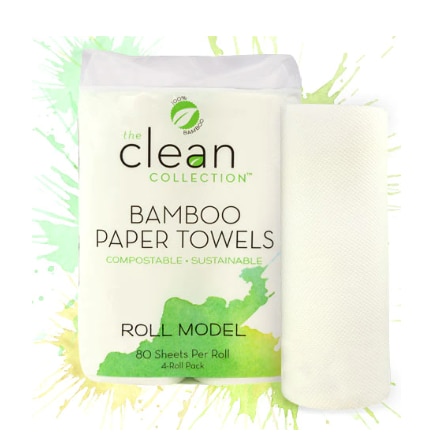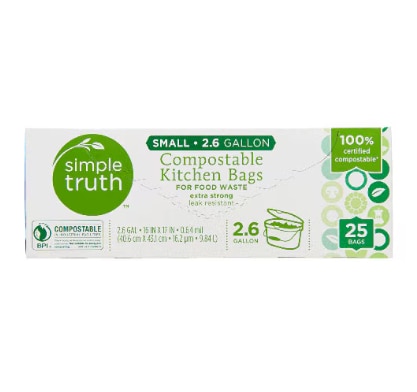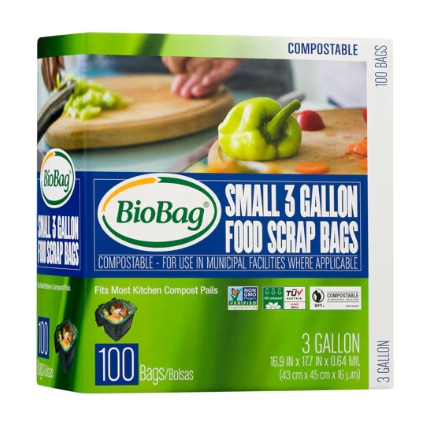By now you may be regularly composting your kitchen scraps, in the warmer months of the year at least. If so, you are part of a happily growing minority. A report commissioned by the Washington-based National Waste & Recycling Association examining just how widespread the practice is amongst Americans found that currently, only 28 percent of us consistently compost kitchen waste.
The study reported that even though 72 percent of Americans do not currently compost at home, 67 percent of the 2,000 adults responding to the study stated that they would be willing to do so if it was easier. Unfortunately, 62 percent of those who responded stated that they would not support an increase in their waste and recycling service costs, either from a separate fee or a tax to support an increase in taxes if separate food and yard waste collection and processing were necessary.
Well, if dedicated composters comprise a minority, at least they are a mighty one. In fact, many composting habitués are so committed, they don’t let cold weather stop them. If you have tended to abandon the practice in winter, figuring that it is simply not feasible, you might be glad to know that you can, in fact, compost in every season with some useful tips. Check out Beat the Freeze: Pro Tips for Maintaining a Compost Pile in Winter.
Now, however, that as we move into spring and summer, timing could not be better. If you are new to the whole concept, you might initially look at How to Start Composting: A Beginner’s Guide. You can also learn about composting with worms, Huckleberry Finn-style; they do most of the work for you! Did you know you can compost even if you live in an apartment? Learn how to compost even if you don’t have a yard.
What is compost tea?
If you are in the groove of composting regularly, you may have heard of compost tea. While it would never be offered in the drawing room with English scones, it is a deliciously clever concept.
The idea is elegant in its simplicity. Compost tea is water in which compost material has been immersed at length. In this ‘steeping’ process, the liquid becomes enriched with nutrients, microorganisms and a range of humic substances−compounds known as humates.
These organic compounds remain after biomatter, such as food scraps, degrades naturally. In other words, they are the residual matter from compost breakdown. Humates are also the major organic ingredient in soil, and they help plants better use nutrients already in the soil, along with a host of additional benefits.
What are the benefits of compost tea?
From a nutritional standpoint, one might consider compost tea as a comprehensive nutritional infusion for plants; compost tea also increases the microbe population in the soil. Other benefits this brew offers your garden include improved soil structure and better water retention capacity−which means the soil requires less water−and stimulated plant root growth, as deeper roots retain moisture better and help reduce runoff.
When is compost ready to “brew?”
High quality compost tea is made from finished compost, which means the compost material has moved through each of the phases of composting and is no longer producing heat. There are four main stages of organic materials turning into compost. The first is the mesophilic phase; the second is the thermophilic phase; the third is the cooling phase; and the fourth is the curing phase.
When compost is finalized, or “cured,” it should have a deep, earthy scent, with its original organic materials well integrated into a homogenous mix. Finished compost, which is often referred to as Black Gold, resembles very dark, intensely rich soil. And this Black Gold is the base for that green thumb elixir, compost tea.
How do you make compost tea?
Now that you have a handle on the basics, how might you go about making your first batch of compost tea? There are several roads to Rome here, as it happens. The preparation of compost tea can be an uncomplicated process, but there are also more complex approaches, one of which is actively aerated compost tea (AACT), which is made with the use of an aeration system, like a multi-outlet aquarium pump, to force oxygen into the brew.
Why bother with AACT?
While the process of making AACT involves additional equipment, many composting enthusiasts declare it to be well worth it, from a quality over quantity standpoint. In other words, AACT goes a lot farther than compost alone, and properly prepared AACT can have four times as many beneficial microbes as regular compost. And, because the nutrients are dissolved, they can be quickly absorbed and assimilated by plants.
Compost tea preparation, simplified
If you prefer a more natural, ultra-simple method for making compost tea that still has many of the benefits of AACT, you’re in luck, as non-aerated compost tea relies only on water, compost, a large bucket or other container and, of course, time. The recipe is very forgiving, and measurements need not be exact.
Directions:
In a 5-gallon bucket or bin, place about 4-6 cups of fully cured compost, which is now “Black Gold.” Fill the container with chlorine-free water. Rainwater is ideal, so you may want to place a barrel somewhere in your yard to capture it for future batches of this plant-pampering tea.
How long should your compost tea brew?
According to the experts at Uncle Jim’s Worm Farm, this depends on the weather. If the temperature is above 60°F, brew for 12-36 hours. If it is below 60°F, leave it for at least 72 hours. This is because the rate at which the good microbes grow could be affected by the temperature. Stir the mixture at least once a day.
When ready, it is worth straining your brew so you can use it both to water plants near the roots and to apply as a nourishing mist in a large, light-weight spray bottle. To strain, you can use a large metal strainer or piece of cheesecloth, filtering out only as much as you need each time. If you decide to skip this step, you can use the tea as is to drench plants, since any solid remains would benefit them as well.
So, there you have it. This incredible liquid plant food will reward your effort in making it, especially if you are already creating Black Gold through composting, as the heavy lifting is already done. Consider compost tea as a natural bonus product from the cured compost you have prepared.
This will be a straightforward process once you get into it, and it will work wonders in your garden. It is a terrific undertaking to share with kids as well, a mini lesson in the natural sciences that also teaches about self-reliance. There is great satisfaction in trading those hard plastic-encased commercial fertilizer products for something natural, free and ultra-beneficial you can create yourself. Cheers to your DIY green thumb!




